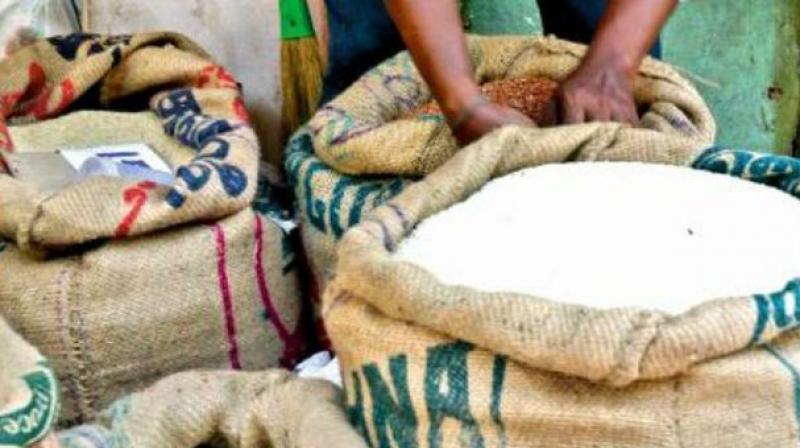Food Security Act from November 1 in Tamil Nadu
Exchequer's burden increases by Rs 2,000 crore.

CHENNAI: The Food Security Act, passed by Parliament in 2013, will be implemented from November 1, the Tamil Nadu Government announced on Thursday, while assuring ration card holders that will continue to get essential supplies at the existing rates though it put a heavy burden of more than Rs 2,000 crore per annum on the exchequer. In a press release issued late on Thursday night, the Tamil Nadu Government said the state Cabinet had taken the decision to implement the Food Security Act since the Union Government had issued an ultimatum to do so.
The Union Government had said if the FSA is not implemented, kilo rice could be distributed to Above the Poverty Line families only at Rs 22.54 as against the existing rate in the state of Rs 8.30. “The state government is committed to ensure food safety for every section of the society on the orders of the Hon’ble Chief Minister. The Union government has not been supplying 27,969 metric tonnes of additional rice that the state government needs since July this year,” the statement said.
The FSA has several clauses that restrict the quantity of distribution of rice and other food materials, but the state government has decided to keep the rates of the commodities and the quantity unchanged even after the act comes into effect from November 1 in the state. Though the FSA says only 5 kilo of rice can be distributed to a single-member family, the state government would continue to issue 12 kilos of rice as per the existing policy, the statement said.
“The state government will have to spend an additional Rs 1,193.30 crore every year to implement the Food Security Act without changing the existing system of public distribution system,” the government statement said. Though the government knew the difficulties and the financial implications in implementing the Food Security Act, Chief Minister J. Jayalalithaa has instructed that the existing PDS system should be continued in the interest of the people of the state. The state government had been opposing the Central FSA saying it would be detrimental to the state and to the popular PDS.

